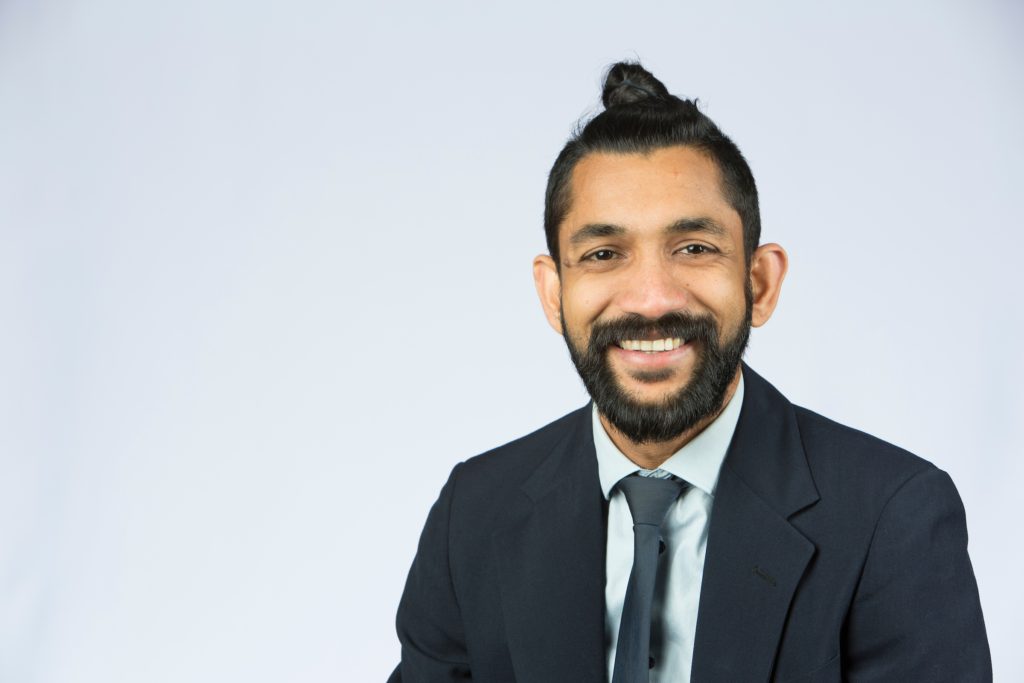
© Michael Forster Rothbart / SUNY Oneonta
Food isn’t the only product treatable as disposable in our society.
Bharath Ramkumar, professor of human ecology at SUNY Oneonta, explores fast fashion.
Bharath Ramkumar is a professor of Human Ecology at SUNY Oneonta. He instructs on quality analysis of apparel products and retail management. His specialties include fashion merchandising, consumer behavior, e-commerce, and structural equation modeling. Dr. Ramkumar’s research has delved into the world of mindful production and consumption practices, technological proliferation in consumption and e-consumer behavior, and entrepreneurship and small business. He is a member of the International Textile and Apparel Association (ITAA) and holds a Ph.D. in consumer, apparel and retail studies from the University of North Carolina at Greensboro, and a post-graduate diploma in marketing management and a bachelor’s degree in fashion and apparel design from Bangalore University, India.
Fast Fashion
Do you have more clothes in your closet than you actually wear? Do you find the amazing deals on trendy clothes irresistible and sometimes wonder how these items are always on a sale? If your answer is yes, you probably are a consumer of what is called fast fashion.
We in America today consume five times more clothing than we did in 1980. We, however, quickly discard a majority of these clothes, with most of them ending up in landfills within a year of being made. Producing more than 150 billion garments annually, the fast fashion industry has already contributed to excessive air, water and soil pollution. With factory workers in Asia getting paid as low as $68 a month, and working in unsafe and often hazardous conditions, apparel retailers have found the perfect recipe to keep their costs low in order to make a quick profit.
In an attempt to highlight ethical manufacturing practices as an alternative to unsustainable mass production, my research focuses on indigenous groups such as the Nongthlu Tribe in Northeastern India, who carry out centuries-old practices of making 100% eco-friendly, handmade silk products. As one of the artisans proudly stated: “In many other places, the silkworm is reared and fed with chemical products, whereas everything we do is organic.”
Though these artisans live challenging lives, relying on spinning and weaving to support their families, their passion for silk making goes beyond income generation, with one artisan declaring “It is not work for me. I love doing it.”
We, as global consumers, have the power to allow the voices and art of such indigenous groups to pave way for a sustainable future where the producer, consumer and the environment are equally protected. Their minimalistic lifestyle can also serve as an inspiration for us to be mindful of what we choose to put on our bodies and who we choose to empower with our dollars.

Comments
One response to “Bharath Ramkumar, SUNY Oneonta – Fast Fashion”